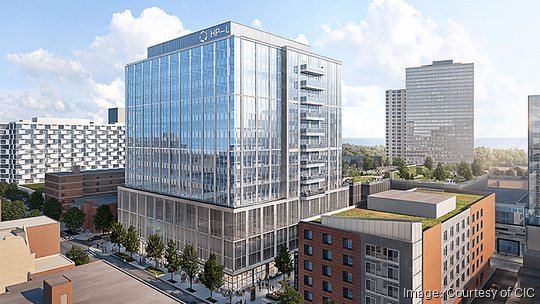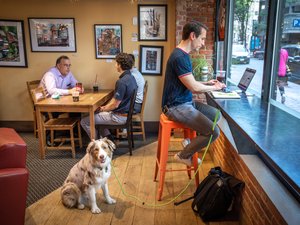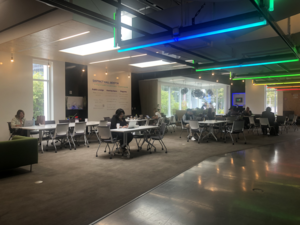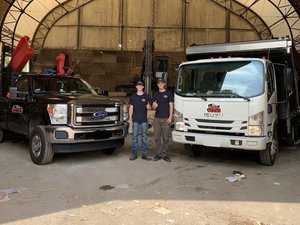
CIC, the global operator of startup "innovation campuses," is partnering with the University of Chicago to bring 20,000 square feet of wet lab and office space to Hyde Park Labs in Chicago.
The $225 million life-sciences building is expected to be completed in 2024 after Trammell Crow Co. and Beacon Capital Partners held a groundbreaking at the campus earlier this year.
CIC's incubator space, CIC Labs, aims to be a space for new startup founders, researchers and industry experts to collaborate and accelerate new ideas.
"What we found is that a building can act as a cluster and that it can be more powerful to have people concentrated in one building in a particular sector," CIC founder and CEO Tim Rowe told the Chicago Business Journal.
Founded in 1999, CIC manages more than 1 million square feet of innovation campuses located by universities, such as in Cambridge and near the University of Pennsylvania in Philadelphia. CIC Labs at Hyde Park Labs will be the company's third U.S.-based wet lab facility and ninth location across the globe.
CIC's first facility in Cambridge grew from five companies to 10, then 50, and now has around 600 companies working out of the campus. It is now the world's largest shared wet laboratory.
"Last year, one-fifth of all early-stage life-sciences funding in the U.S. flowed into companies in this one building," Rowe said.
Since then, a second CIC Lab was built in Philadelphia, the second-largest wet lab in the country, and by helping companies like Spark Therapeutics scale their businesses, has turned that city into a hub for cell and gene therapy.
Growing Chicago's life-sciences sector
Rowe wants to bring that same model to the South Side of Chicago.
"In our view, there's a finite number of clusters for advanced research, and the Chicago ecosystem is one of them," he said. "The bottom line is that you won't show up on the map until you put together the basic building blocks. It's like if you don't have an airport, you're not going to have a lot of flights to your city. If you have the raw materials, and we think that Chicago has them, then you become one of those places."
CIC Labs' arrival builds on the view that taking life-sciences to the next level in Chicago starts by collaborating with and supporting local universities. The 300,000-square-foot Hyde Park Labs building, located in Chicago’s Hyde Park neighborhood, will be anchored by the University of Chicago.
"The universities are the engine of innovation for most cities. Even San Francisco right now is not doing as well as the Stanford ecosystem," Rowe said. "One of the paths to daylight for San Francisco is trying to get Berkeley to set up in the city."
Meanwhile, momentum continues to build for Chicago's life-sciences sector, as fundraising for Chicagoland life sciences has increased every year since 2018, and in the last five years, Chicago employment in biotech has grown by 29%.








